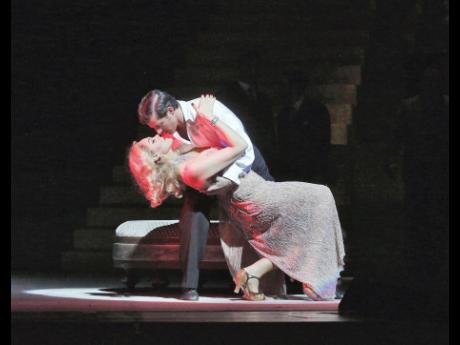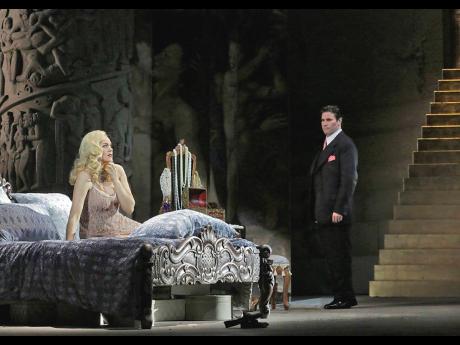'Manon Lescaut' encores tomorrow
There will be an encore performance of Puccini's Manon Lescaut tomorrow at the Palace Cineplex and Palace Multiplex.
The French story tells the romantic tale of a beautiful young woman destroyed by her conflicting needs for love and luxury had already inspired Massenet's opera, Manon, a relatively new and immensely popular work at the time of Manon Lescaut's premiere. Puccini put his own interpretation on the story and injected it with flourishing melody and a deeper and honest level of emotion.
The opera was his first of many acclaimed successes, leading George Bernard Shaw to name him "the successor to Verdi".
The libretto is in Italian and is the combined work of five librettists whom Puccini employed. The publisher, Giulio Ricordi, and the composer himself also contributed to the libretto. So confused was the authorship of the libretto that no one was credited on the title page of the original score. However, it was Luigi Illica and Giuseppe Giacosa who completed the libretto and went on to contribute the libretti to Puccini's next three and most successful works, La Boheme, Tosca and Madama Butterfly.
Puccini took some musical elements in Manon Lescaut from earlier works he had written.
Manon Lescaut had its world premiere at the Teatro Regio, Turin, in 1893. The Met premiere was staged in 1907.
For this Met season, soprano Kristine Opolais and tenor Roberto Alagna join forces in Puccini's obsessive love story. Opolais sings the title role of the country girl who transforms herself into a Parisian temptress, while Alagna is the dashing student who desperately woos her.
Act one is set in Amiens, France, around 1720. Edmondo, his fellow students and their girlfriends are enjoying the summer evening in a public square. They welcome the young Chevalier Des Grieux, who sings a jaunty serenade to the girls (Tra Voi, Belle). Soon the courtyard stirs with the arrival of a carriage bearing Manon and her brother, Lescaut, who is escorting his sister to a convent at their father's orders. Sharing the coach is Geronte, an old and wealthy Parisian gallant.
While the innkeeper shows Lescaut and Geronte to their rooms, Des Grieux introduces himself to Manon. She is intrigued by him and agrees to meet him later, then joins her brother. The Chevalier realises he has fallen in love (Donna non vidi mai). Geronte, who also has designs on Manon, bribes the innkeeper to arrange for Manon's abduction. Edmondo, who has overheard the conversation, warns Des Grieux.
As evening falls Manon keeps her promise and meets Des Grieux, who persuades her to evade both the convent and her elderly admirer by running off to Paris with him instead (the duet Vedete? Io Son Fedele is performed). Geronte returns to find the young lovers escaping in the carriage he hired for himself and Manon. Furious, he is calmed by Lescaut, who assures him that a girl like Manon who loves luxury will be easy to lure away from a poor student.
Tickets are on sale for The Met Opera's 2015 16 season at the box offices and via the web at www.palaceamusement.com, with a Palace Card.


